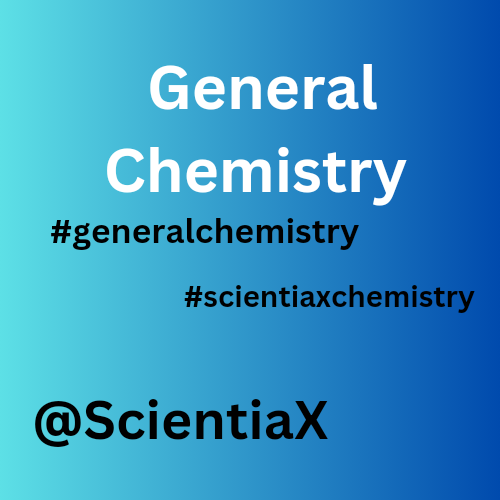Here is an overview of general chemistry topics:
1. Atomic Structure
- Atoms and elements
- Subatomic particles (protons, neutrons, electrons)
- Atomic number and mass number
- Isotopes
2. Periodic Table
- Periodic trends (atomic radius, ionization energy, electronegativity)
- Groups and periods
- Metals, nonmetals, and metalloids
3. Chemical Bonds
- Ionic bonds
- Covalent bonds
- Metallic bonds
- Lewis structures
- Molecular geometry and VSEPR theory
- Polarity
4. Stoichiometry
- Mole concept
- Molar mass
- Avogadro’s number
- Balancing chemical equations
- Empirical and molecular formulas
- Limiting reactants
- Percent yield
5. States of Matter
- Solids, liquids, and gases
- Kinetic molecular theory
- Phase changes (melting, boiling, sublimation)
- Heating curves
6. Solutions and Solubility
- Solvents and solutes
- Concentration units (molarity, molality)
- Solubility rules
- Colligative properties (boiling point elevation, freezing point depression)
- Saturated, unsaturated, and supersaturated solutions
7. Thermochemistry
- Energy and heat
- First law of thermodynamics
- Enthalpy (ΔH)
- Exothermic and endothermic reactions
- Hess’s law
- Calorimetry
8. Chemical Kinetics
- Reaction rates
- Rate laws and reaction order
- Activation energy
- Catalysts
- Reaction mechanisms
- Collision theory
9. Chemical Equilibrium
- Dynamic equilibrium
- Equilibrium constant (K)
- Le Chatelier’s principle
- Reaction quotient (Q)
- Calculating equilibrium concentrations
10. Acids and Bases
- Definitions (Arrhenius, Brønsted-Lowry, Lewis)
- pH and pOH
- Strong and weak acids/bases
- Acid-base titrations
- Buffers
11. Redox Reactions
- Oxidation and reduction
- Oxidation states
- Balancing redox equations
- Electrochemical cells (galvanic and electrolytic)
- Standard reduction potentials
12. Electrochemistry
- Electrolytes
- Faraday’s laws of electrolysis
- Nernst equation
- Applications (batteries, fuel cells)
13. Nuclear Chemistry
- Radioactivity
- Types of radiation (alpha, beta, gamma)
- Half-life
- Nuclear reactions (fission, fusion)
- Applications and effects of radiation
These topics provide a solid foundation in general chemistry and are essential for understanding more advanced concepts in the field.
